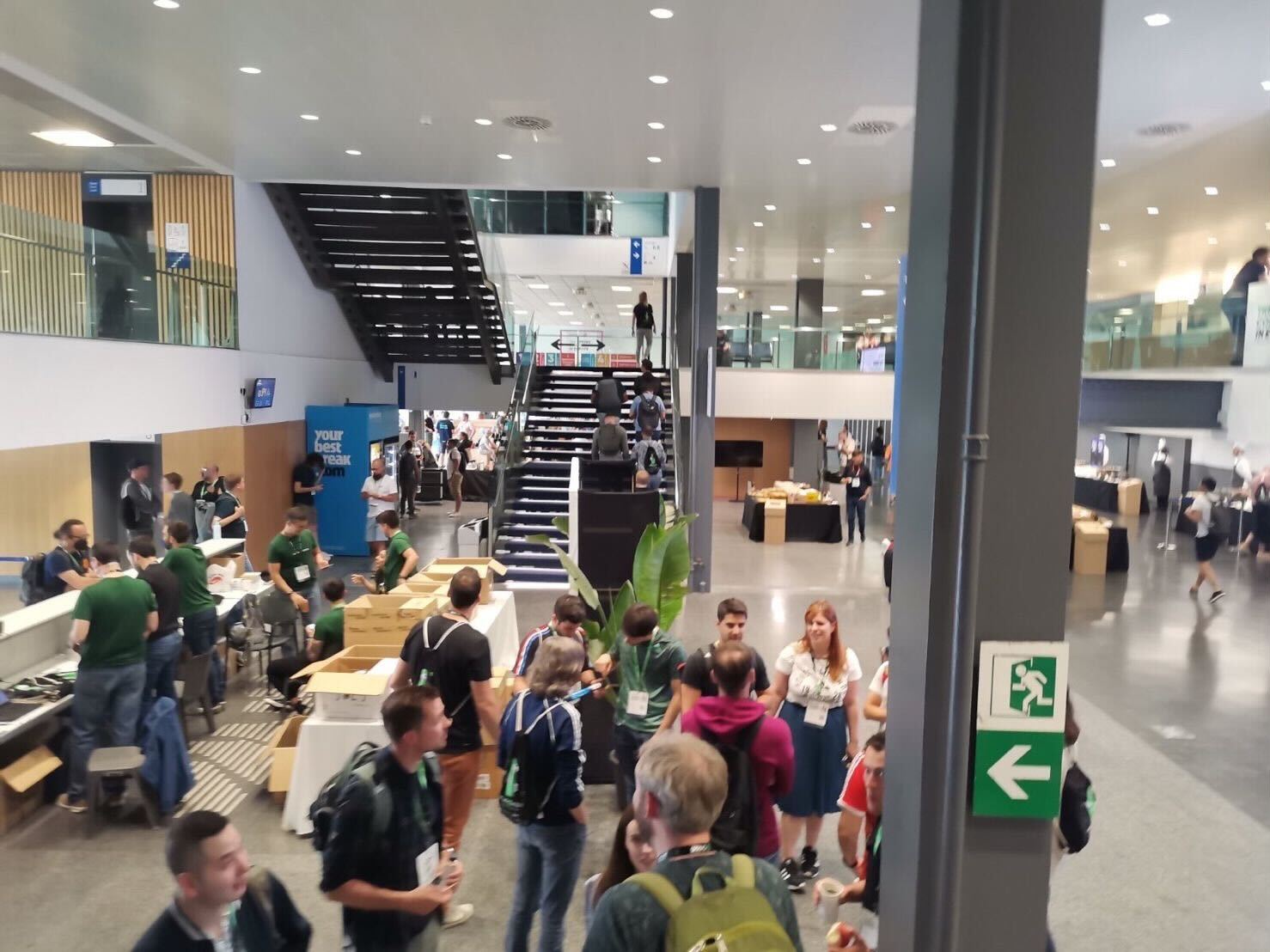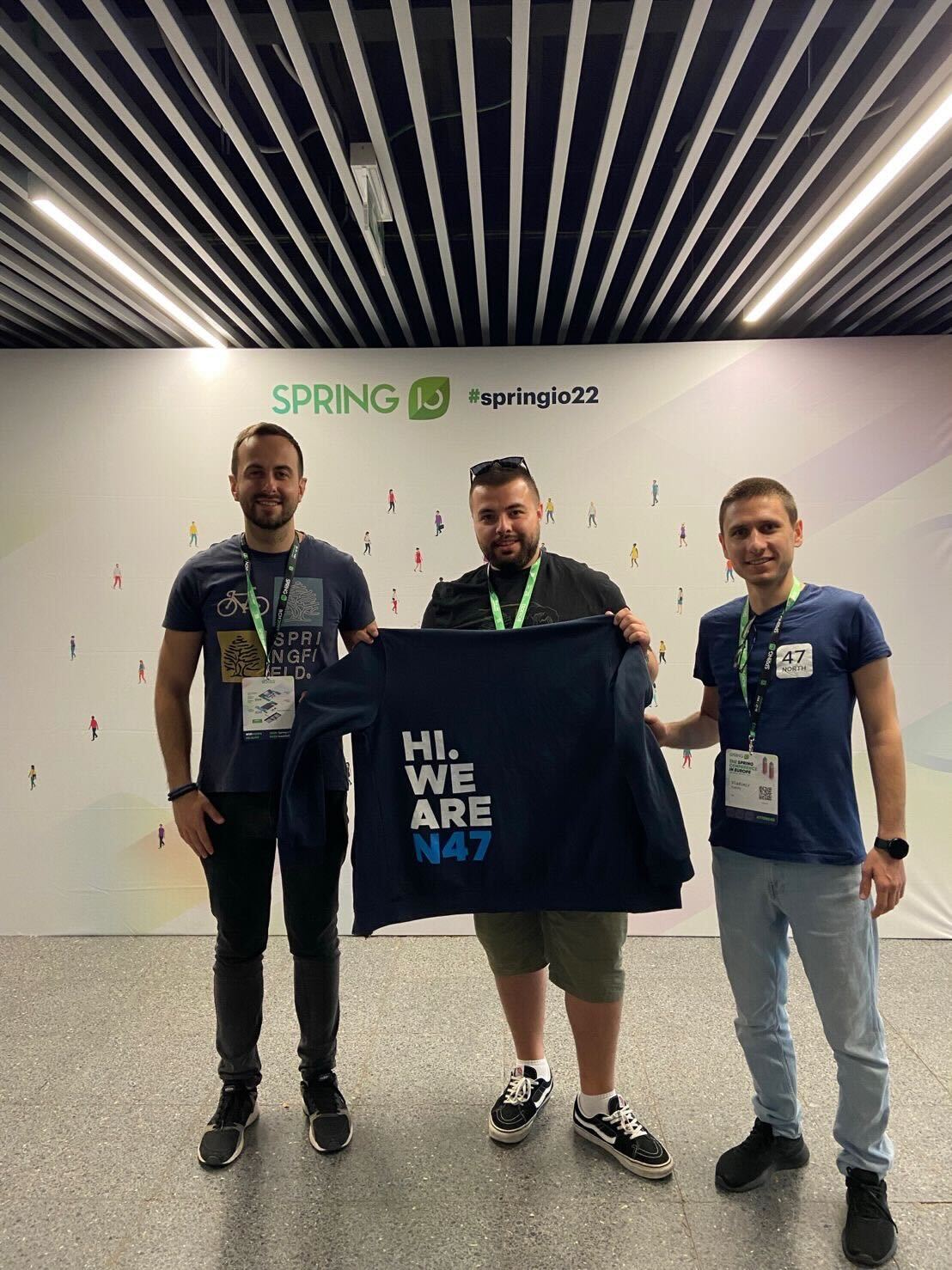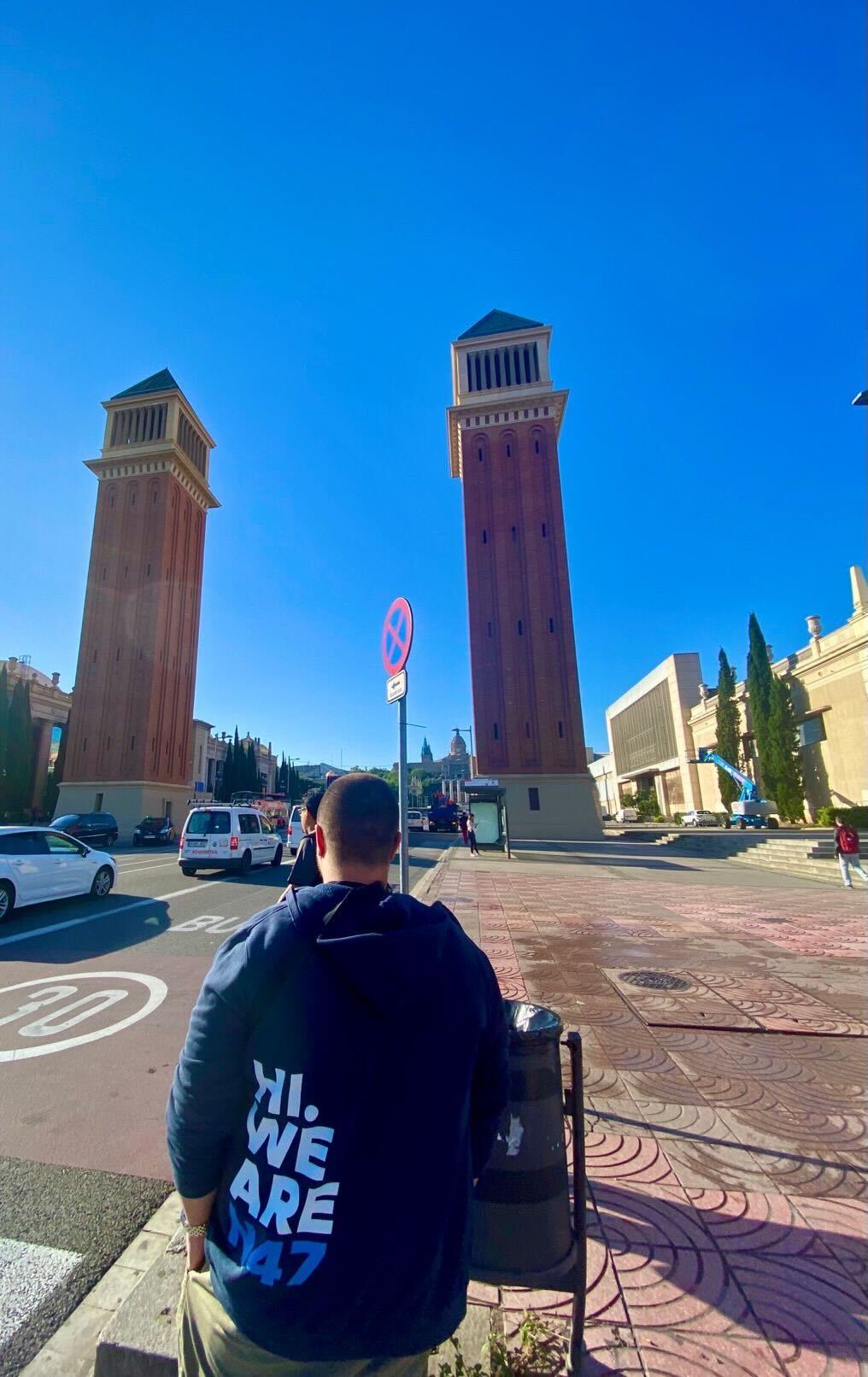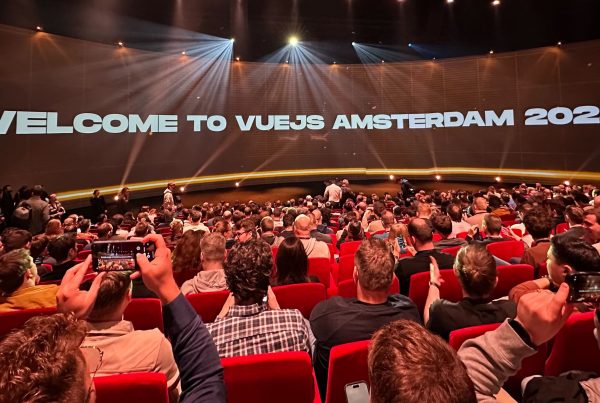Spring I/O is Back as an in-person event in the beautiful city of Barcelona.
Spring I/O is the leading European conference focused on the Spring Framework ecosystem. This year marks the 9th in-person edition. The conference is held between 26-27 May. There isn’t a better place for Spring like-minded people to discuss and share ideas with other Spring like-minded people than Spring IO. The place chosen for this year is Palau de Congressos de Barcelona (Fira de Barcelona) and its maravilloso.
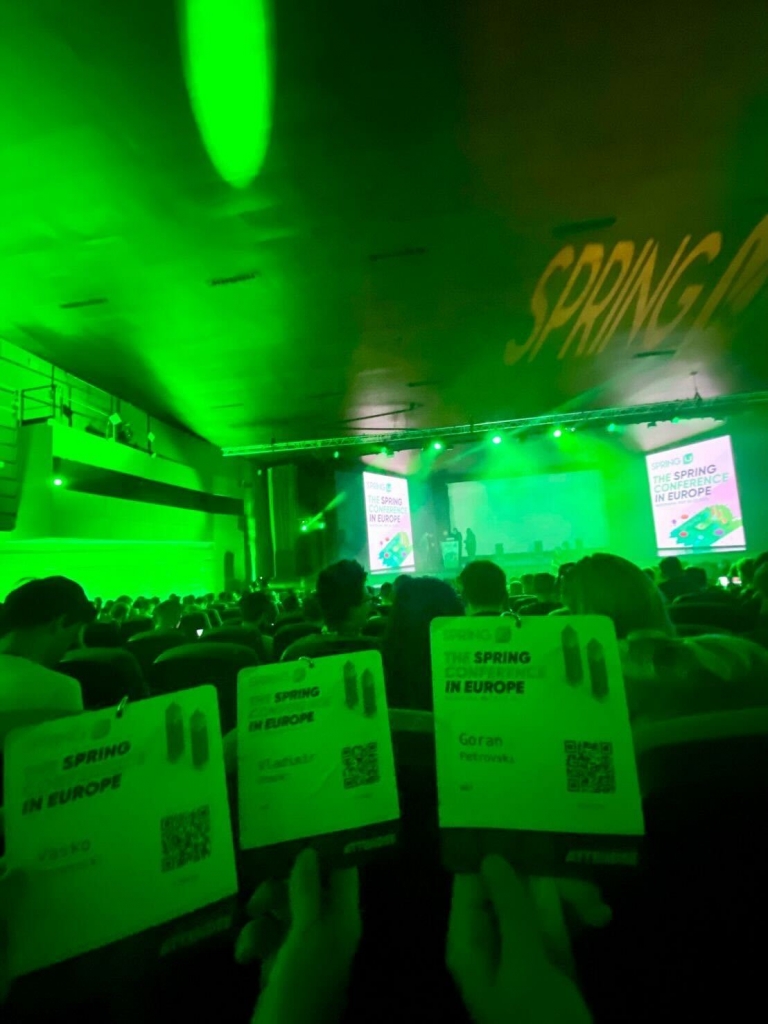
Preparation
The initial preparation is done as mentioned below:
- Ticket booking, The Conference ✔️
- Travel booking, Skopje – Macedonia to Barcelona – Spain✔️
- Hotel booking ✔️
Due to Corona, a direct flight from Skopje to Barcelona was discontinued and we had to find another travel route. The route chosen was Skopje – Macedonia ( 🚗 ) -> Sofia – Bulgaria ( ✈️ ) -> Barcelona – Spain and back.
The Conference took place in Palau de Congressos de Barcelona (Fira de Barcelona) Barcelona.

Topics
Some of the topics presented. You can find the full list here.
- Modular Applications with Spring
- Reactive Microservices with Spring Boot and JHipster
- Declarative Clients in Spring
- To Java 18 and Beyond!
- Making sense of Configuration and Service Discovery on Kubernetes
- Getting modules right with Domain-driven Design
- Ahead Of Time and Native in Spring Boot 3.0
- How fixing a broken window cut down our build time by 50%
- Testcontainers and Spring Boot from integration tests to local development!
All of the presentations were fun and engaging. There were 4 different rooms ( tracks ) at the same time and also there were three workshops for each day of the conference. It was a really big challenge to choose which one to participate in.
Conference recap
After the opening ceremony, the keynote speech by Juergen Hoeller (Spring Framework project lead and co-founder) discussed the current state of Spring Framework and what the future holds. He discussed the upcoming version of Spring Framework 6 and Spring boot 3.
The new generation is very forward-looking and meant for 2023 and beyond
The next generation of Spring comes with JDK 17+ baseline, support for AOT ( Ahead-of-time ), Virtual Threads ( Project Loom ).
AOT: It is a form of static compilation which translates the program to machine-readable code before the execution of the program. This compilation offers small packaging fast start-up times and a low memory footprint.
Virtual Threads: Java uses OS kernel threads for concurrency implementation. There are several problems with this approach. A thread for every transaction, user, or session is not feasible as the number of threads per kernel is often smaller. Expensive context switch when synchronization between threads is needed. Project loom is an attempt by the OpenJDK community to introduce a new concept of a lightweight concurrency model in Java using Virtual Threads. Virtual threads are not tied to OS threads but are managed by the JVM which then maps several Virtual Threads to one or more OS Threads.
To find out more about AOT and Project Loom follow the links.
Another interesting presentation was To Java 18 and Beyond! which introduced us with what are the new features of Java 18
UTF-8 by Default – this encoding becomes default now and not the charset determined by the host.
Simple Web Server – a minimalistic server that could serve static files only.
Vector API – API for usage of computation array of numbers as a single entity
Code Snippets in Java API Documentation
Some improvements, deprecation removal, etc.
The presentation can be found here.
Also, another presentation How fixing a broken window cut down our build time by 50% I suggest watching what was interesting is how by fixing a broken window speaker Philip Riecks explained how his team improved build time by 50%. I am always fascinated by the theory of broken windows which indicated that if there is any sign of something broken, not cleaned up, something messy or wrong this encourages other similar behavior. We should encourage refactoring and improvement behavior which will ultimately make our code better and our daily jobs easier and might increase build time similar to with speaker’s case.
We should always follow the boy scouts’ rule
Leave the campground cleaner than you have found it.


On the Redis conference stand our colleague won a prize that granted us a private session with the Redis team where we discussed what makes Redis so fast. We discussed Redis Enterprise which is Redis open source but on steroids. The most powerful fully-managed Redis.
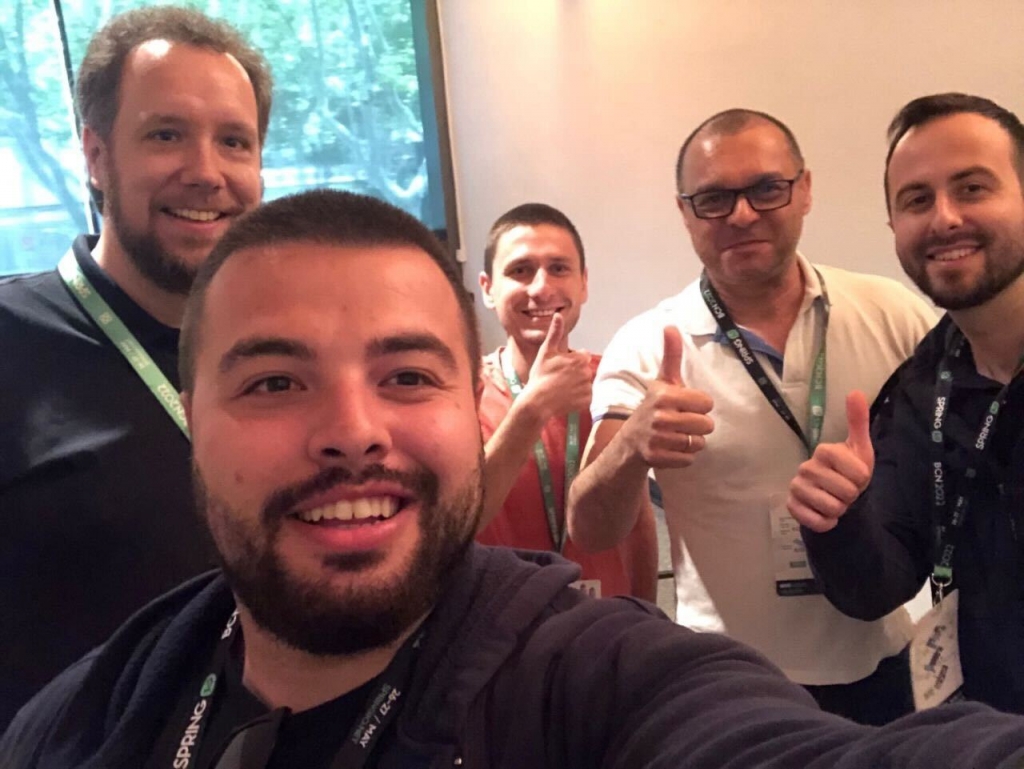
Conclusion
Overall It was an excellent experience and I am so grateful for being a part of the Spring IO conference. It was awesome to meet many new people from the Spring Community, and experience the beautiful city of Barcelona.
